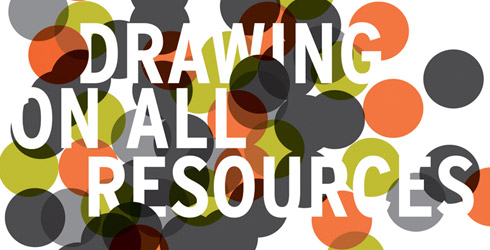Discussions and Workshop, Drawing on All Resources

The following discussion groups and workshop were held at Drawing on All Resources: developing open educational practice in art, design and media on 16 May 2012 at the University of Brighton.
Session 3
The Best Use of Infinity?
Discussion led by Christoph Raatz, Executive Secretary, Council for Higher Education in Art and Design
Abstract
This session used Alan Clarke’s article ‘The Best Use of Infinity: Open Educational Resources and the Politics of Knowledge’ as a starting point for discussion around ideologies underpinning open educational resources and practice. Some of the ideas articulated by Clarke are outlined below.
Since their introduction by MIT in the late 1990s, OERs have become a phenomenon that have grown to a global network. The largest organised network is the OpenCourseWare Consortium (OCW), which comprises more than 300 universities in more than thirty countries.
Facilitated by the internet, OERs provide new ways of learning, which force a new assessment of the politics of knowledge and the ‘business’ of education. In particular, using Jefferson’s concepts of the ‘fair use’ intellectual materials and educational matter being in the ‘commons’, a strong argument can be made about universities’ moral and ethical obligations to participate in a global culture of knowledge sharing and creation. Jefferson’s ‘commons’ can be seen as synonymous with the modern concept of the ‘public domain’: a public place where anybody can place or access intellection or creative product.
Furthermore, the philosopher Ernest Gellner demonstrates that sharing knowledge is an essential element of ‘organic’ knowledge growth. Organic knowledge is profoundly social and seeks to understand through analyses of context and by viewing things in relation to one another. OERs are a powerful tool for organic knowledge creation.
OERs share many of the principles that underlie much of the internet and, specifically, the phenomenon of ‘wiki’ websites: openness, peering, sharing and acting globally. These principles are in certain conflict with notions of intellectual property. Consequently, the definition of OER includes the stipulation that resources have been released under an intellectual property licence that permits their use or re-purposing by others.
Despite the requirement to relinquish IPR, participation in OER networks can still be ‘good business’ for universities, as accessing a HEI’s resources through OER does not include that institution’s accreditation, while at the same time the HEI benefits from the association with the OER network through a raised profile.
Reference
Clarke, A. ‘The Best Use of Infinity: Open Educational Resources and the Politics of Knowledge’. http://arts.brighton.ac.uk/projects/networks/networks-issues-1-15/selected-feature-articles-from-the-networks-archive. Date accessed 21/03/12.
Biography
As Executive Secretary of CHEAD, the Council for Higher Education in Art & Design, Christoph Raatz is the main representative of the association that comprises some 70 member institutions with degree or postgraduate provision in art and design, represented by their most senior academic concerned with art and design. He has overall responsibility for the management of CHEAD and advises its Executive Committee on strategic planning to ensure that CHEAD continues to provide leadership and an inclusive, cohesive body for and on behalf of Art and Design higher education in the UK four nations, advancing knowledge and understanding in the sector and promoting the sector’s interests to others.
Prior to joining CHEAD, Christoph was at the London School of Economics as the coordinator of a European Commission-financed, international research project in political economy. From 2003 to 2006 he then worked at Goldsmiths College as the project officer of the Writing PAD project, a major initiative designed to promote the adoption of models of good practice that encourage inclusive approaches to the purposes and possibilities of writing. Christoph is also an elected Fellow of the Royal Society of Arts.
_______________________________________________________________________
Session 6
process.arts: open participatory education workshop
Chris Follows, Project Manager, DIAL Project, University of the Arts London
Abstract
In this workshop Chris Follows led a hands-on demonstration / discussion of and relating to University of the Arts London’s (UAL) perspectives on developing open participatory education and social media content groups and networks through process.arts (http://process.arts.ac.uk/), an open online resource sharing day-to-day arts practice and research of art, design and media staff, students, alumni and practitioners. Chris summarised UAL’s experience of developing process.arts from grassroots innovation to an institutional service.
Background
process.arts emerged from grassroots activity; since 2006 it has maintained a sustainable and independent system of development, through agile web development. The project fully relies on individual and group participation and is managed and developed through a combination of voluntary participation, research secondments and fellowships. The project has never been an official institutional service and no one is employed to support the site. The overall concept is to encourage ‘open practice’, cross-college communication and knowledge sharing within UAL, and wider engagement with alumni, industry and the sector. It’s hoped over time, and through promoting sites like process.arts, participation in open educational web environments will become more accepted in academia and participants will begin to embed open participatory education practice into existing day-to-day practice.
Biography
Chris Follows has worked at the University of the Arts London for seven years and has been researching and developing practice-based Art and Design open educational media content communities since 2007. Chris is currently Project Manager to DIAL (digital integration into arts learning) (http://dial.myblog.arts.ac.uk/about-dial/), part of the JISC UK Developing Digital Literacies programme, (http://www8.open.ac.uk/score/fellows), SCORE Fellow at the Open University, web environment coordinator for ALTO & ALTO UK (http://blogs.arts.ac.uk/alto/alto-uk/)(JISC UK OER programme) and the initiator process.arts (http://process.arts.ac.uk). Other projects include NAM: Conflict and Media (http://blogs.arts.ac.uk/conflictandmedia). Chris is a painter and works in his studio, an artist run space in Stockwell, London (http://www.amacstudios.org/).
_______________________________________________________________________
Session 9
The Question of Quality
Discussion led by David Mathew, Learning Technologist, Centre for Learning Excellence, University of Bedfordshire
Abstract
Among the many thousands of OERs available, what percentage will be of a good quality, and what exactly to we mean by 'good quality' in the context of OERs? How do we judge? What are the criteria? If a student visits an OER repository, how does he or she know that the resource is of a good quality, beyond an appraisal of the way it looks (or sounds)? Is the material up-to-date and factually correct? Has it been written with a student or an educator in mind, and does it make any difference in the OER environment? Above all, how do we ensure that quality is maintained if more and more resources are uploaded every day? A simple look at any OER repository will show that a very wide range of quality is available, and how do we know that anyone is completing the relevant maintenance?
Biography
David Mathew works in the Centre for Learning Excellence at the University of Bedfordshire, UK, and as an independent researcher and writer. His wide areas of interest include psychoanalysis, linguistics, distance learning and online anxiety. With approximately 600 published pieces to his name, including a novel based on his time working in the education department of a maximum security prison (O My Days), he has published widely in academic, journalistic and fiction outlets. In addition to his writing, he co-edits The Journal of Pedagogic Development, teaches academic writing, and he particularly enjoys lecturing in foreign countries and learning about wine.
Header image: Section of logo for Drawing on All Resources, designed by compoundEye


